Baking better cake at Leadership Forum
Published on February 3rd, 2018
The Sailing Leadership Forum has attracted leaders in the sport to meet and learn from one-another amid a full schedule of presentations on February 1-3 in St. Petersburg, FL. Scuttlebutt editor Craig Leweck shares some notes from the sessions he attended on February 3:
8:30-10:00am: Bella Mente Quantum Racing’s Campaign for the 36th America’s Cup: Quest to Win the Cup and Rebuild the Base of Competitive Sailing in the US
Presenter: Hap Fauth – Principal, Terry Hutchinson – Skipper, Commodore Phil Lotz – New York Yacht Club
Doug DeVos, Hap Fauth, and Roger Penske share the passion and provide the leadership, finances and other resources to fulfill the team’s intent to win the America’s Cup. They are underwriting half of what they anticipate to be a 125-130 million dollar budget. Having significant support out of the blocks has allowed the team to solidify their infrastructure and create a design group with over 30 people now working on the project.
It is a priority of the team to leave a legacy and have positive impact on American sailing. The team is eager to develop an America’s Cup culture within the country, and has formed partnerships with Oakcliff Sailing and US Sailing to solidify the grassroots foundation of the program.
New York Yacht Club did ponder getting involved in the AC after New Zealand won, but it wasn’t until the BMQR team approached the club did the mission become real. The history of the club is closely connected with the event, and there was an interest to end the 17 year gap of involvement. The club has sought to be a leader in the sport and being involved in the event fulfills that objective.
The design rules for the AC75 monohull won’t be available until March but the kiwis have been open to the team in what to expect. It is anticipated that foiling will occur with 12 knots of boat speed and how the boat will have roughly the same speed as the 15-meter catamaran raced in the previous America’s Cup. The race will begin with a more conventional five minute start sequence and upwind start.
The team is eager to see a continuous path from green fleet to the America’s Cup for sailors in the USA. Additionally, the team is eager to recruit technical skills from the country. While the AC boat won’t be launched for another year, the team is actively searching for sailors to complete their crew, looking within the US Olympic Team and beyond. The crew size is expected to have 11 people, of which the team is committed to have at least 7 from the USA.
A new TP52 and Maxi 72 are in construction and will help with crew training during the 2018 season. Dean Barker has been hired to steer the 52 but is not (yet) on AC team.
The boat has to be built within country, and has been confirmed the team will set up base in Newport for build and training but has not yet confirmed its suppliers. The boat is expected to have a D-section spar, double luff mainsail, soft jib and assymetrical spinnaker. The one design parts are expected to be the spar and foil control system, with the foil being one design but allowing custom tips that would be geared toward sailing conditions.
The team seeks to compete with the highest ethics and sportsmanship on race course, and transparency within the organization. There will be respect for the sport and the event with hopes of heightening interest in the event and allowing the attributes of the campaign to trickle down to the benefit of the country.
10:30-11:30: Squaring the Pyramid: A New Youth Sailor Development Model
Presenter: John Pearce, US Sailing
US Sailing Youth Department opened 18 months ago to promote all aspects of youth sailing, and it was deemed that a youth sailing development model was necessary to help to define strong guidelines on how a young sailor should be led through the stages of the sport.
The example used was in the development of a young sailor, it is like baking a cake. You need all the ingredients, and they must be introduced in the right order.
The development pyramid is broken as it only works for the elite participant. With an emphasis on competition, significant attrition occurs as those with lesser skill opt out in favor of other activities. There is a growing recognition amid all youth sports that a new model is needed.
US Lacrosse launched the concept of how the need is to square the pyramid to help allow the larger numbers that begin in a sport when young to rise up the ranks. This concept is needed to halt the trend of declining participation seen in all youth sports. We need to rethink how we organize operate, and execute sport activity in America.
The aspects of this new model is to ask kids what they want, reintroduce free play, encourage sport sampling, revitalize in-town leagues, think small, design for development, train all coaches, and emphasize prevention. US Hockey is a leader in the shift and is now the only major sport that is growing at the youth level.
US Sailing is actively rethinking youth sailing, which has started with defining the possible outcomes that define the options for a lifetime sailor: recreational smallboat sailing, coastal sailing, offshore sailing, smallboat racing, and high performance racing. By knowing the outcomes, the task is then to define paths and skills needed to carry the youth sailor toward the outcome of adult participant.
Sailing has a huge advantage in how it has instructor certification, which is not common in other youth sports. The task is now to provide the specific tools to help instructors move young sailors along in the pathways toward their preferred possible outcome.
For visual presentation… click here.
The remarkable range of participants at the Forum offered opportunities for insightful meetings and “offline” discussions that will prove invaluable as I navigate and present the issues of the sport. Prior to my afternoon flight home, the balance of my day was spent in this mode, sitting down with some of the people actively involved in raising important aspects of sailing in the USA.
I was often asked by Forum organizers and fellow attendees about my impression of the event, and my repeated response was one of optimism. There have been many well-intended decisions over the years that have had unintended consequences which have impacted growth and skill. Where once we discussed this with caution, we now converse out loud.
Change does not come swiftly in our sport, but embracing new (or sometimes old) ideas must first occur. There is broad recognition that change is needed and in how it can be applied. This shift must be celebrated and supported, and I see the opportunity for good days ahead. The Forum is enabling this movement and I can’t wait for the next edition in 2020.
Forum details: sailingleadership.org


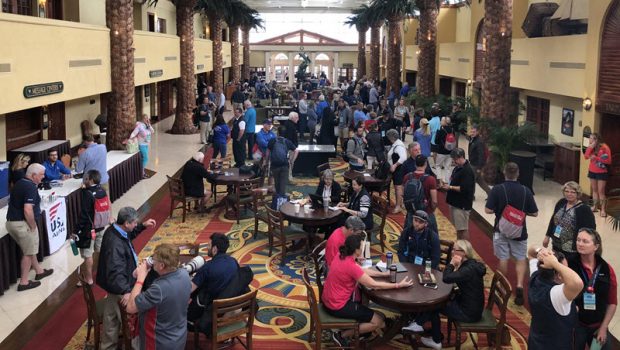


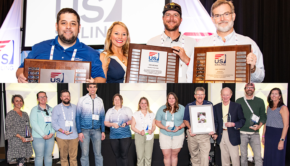
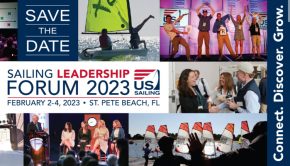
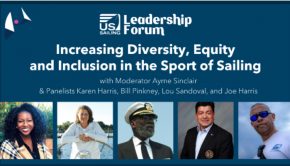
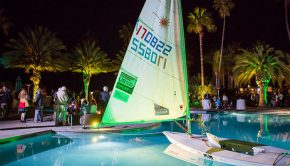
 We’ll keep your information safe.
We’ll keep your information safe.